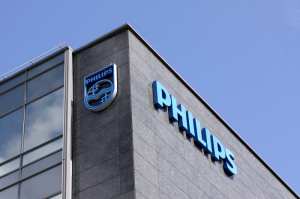por
Thomas Dworetzky, Contributing Reporter | June 15, 2018
Royal Philips is upping its footprint in the resuscitation and emergency care market with the purchase of U.K.-based Remote Diagnostic Technologies (RDT), the latest in a string of acquisitions for the healthcare company.
“With the acquisition of RDT we can boost our capabilities and portfolio in this vital area of healthcare," Arman Voskerchyan, business leader for therapeutic care at Philips, said in a statement. "With its focus on the pre-hospital market, RDT’s portfolio of emergency care solutions will enable Philips to grow its presence in this market, as we further build our health technology portfolio and extend the range of connected, data-driven solutions we offer to our customers.”
Philips will add RDT's offerings to its present range of monitoring and therapeutic products aimed at EMS, hospitals and lay responders who provide on-the-scene care – including the Tempus ALS, a modularized monitor and defibrillator.
“We are delighted to become part of Philips and continue on our journey that began over 20 years ago,” RDT CEO Graham Murphy said of his 100-person firm, founded in 1997, adding that he felt the two firms were in alignment on the commitment to “transforming the delivery of care and improving patient outcomes driven by customer-focused innovation.”
No financial details were disclosed.
The acquisition is the second that Philips has pursued this month, having announced another deal earlier on in the range of $295 million
for electrophysiology technology maker EPD Solutions.
“EPD’s technology is essentially an imaging and navigation technology, and Philips is the leader in interventional imaging,” Ronald Tabaksblat, senior VP and leader of the Image Guided Therapy Systems business at Philips, told HCB News at the time. “Through the EPD acquisition, we will strengthen our position in the cardiac arrhythmia ablation market.”
EPD’s cardiac imaging navigation system generates a detailed 3D image of cardiac anatomy to assist electrophysiologists with navigating the heart. It also determines the location and orientation of catheters.
In May, Philips
announced another deal, the acquisition – without further financial details – of Netherlands-based NightBalance, a digital health scale-up company behind a sleep apnea and snoring treatment.
The NightBalance’s Sleep Position Trainer gently prompts sleepers not to sleep on their back, avoiding the apneas from occurring during sleep – and is CE-marked.
